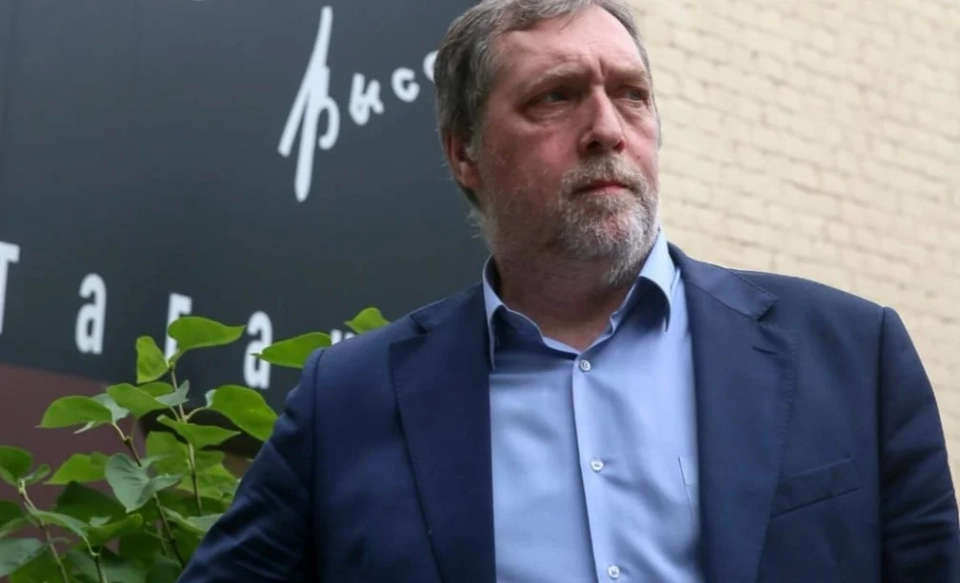Nikita Vysotsky: The Cinema of Russia and Kyrgyzstan Unites the Audience
The idea for this film was developed by Anatoly Maximov and Konstantin Ernst, who already have many successful projects under their belt, such as "Viking," "Admiral," "Night Watch," and "Day Watch." Their works always represent significant contributions to the world of cinema.
After Konstantin Ernst became acquainted with the novel, he expressed a desire to adapt it for the screen. All project participants, including the director and actors, quickly responded to this idea. Initially, I had no intention of filming "In August of 1944," but as I became more involved in the project, I realized its importance and relevance. What started as a producer's concept became my personal endeavor.
What do you think is the main emotion conveyed in the film "August"?
I haven't thought about it in detail. The film has many emotions, and it is very emotional overall. Viewers do not perceive it as a detective story where they need to solve a mystery, but rather deeply engage with what is happening.
The film tells about war, the losses, and the sorrows associated with it. The characters live in conditions where the war has been going on for four years, yet they continue to fulfill their duties. The main task is to create a sense of presence in this world for the viewer, which we convey through time and real events.
If the viewer feels like a part of what is happening, then we have succeeded in conveying the necessary emotions and ideas. Otherwise, they are just observing shadows on the screen and forgetting about them.
The film is actively being shown in Russia and receiving positive reviews. In Kyrgyzstan, some viewers have already managed to see it, likely through unofficial sources, as it is not yet available legally.
How do you interact with actors in scenes that require deep and painful emotions?
Actors must be professionals to handle such tasks. However, like in an orchestra, it is important to create a unified sound that is subordinate to the overall theme and mood.
We have a wonderful team of actors, both in leading roles and in supporting ones. Even those playing minor roles approach their work with great seriousness. It is important that the screen features not random faces, but actors who are worked on by makeup artists and costume designers — we all interact.
The shooting process is lengthy, and it is important to maintain a consistent emotional state. Here, the director plays a key role in supporting the actors.
Is there a connection between the films "August" and "Love of the Soviet Union"?
Both films relate to the same time and generation; however, they are different. They share a common creative team: the same cinematographers and many actors.
Kirill Kuznetsov and Roman Vasilyev, who played the leading roles in "Love of the Soviet Union," represent themselves here in secondary but expressive roles. The films differ in tone and interaction with the audience, but both are made professionally and honestly.
What is more important to you in war cinema: the truthfulness of facts or the strength of human character?
Both aspects are important and interconnected. An interesting and serious story requires both truthful facts and strong characters. The hero is the heart of the work. Without a strong character, there can be no idea.
What do you think unites Russian and Kyrgyz cinema today?
I believe we are united by the audience. Recently, a week of Kyrgyz cinema took place in St. Petersburg, and it showed that we have a common audience living in the same historical context. We work for them, even if we are in different countries. Many Kyrgyz directors have studied in Russia and work with us. We are connected by many things — geography, history, and people.
If you had the opportunity to shoot a film in Kyrgyzstan, what would it be about?
In my opinion, you cannot just say, "I will shoot a film in Kyrgyzstan." Cinema is a complex and serious process that does not start with a simple idea. But if someday an idea arises based on reflection and an inner necessity, I will realize that I have the opportunity to implement it in Kyrgyzstan. I came to you without a visa and any formalities, and I am not the only one. I think many of our filmmakers feel that our countries are coming closer together and will definitely want to work together.
Read also:
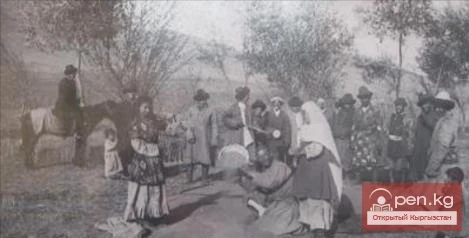
In Kyrgyzstan, a documentary film "Urkun" is being made about the 1916 uprising.
A documentary film titled 'Urkun' about the 1916 uprising is being filmed in Kyrgyzstan....
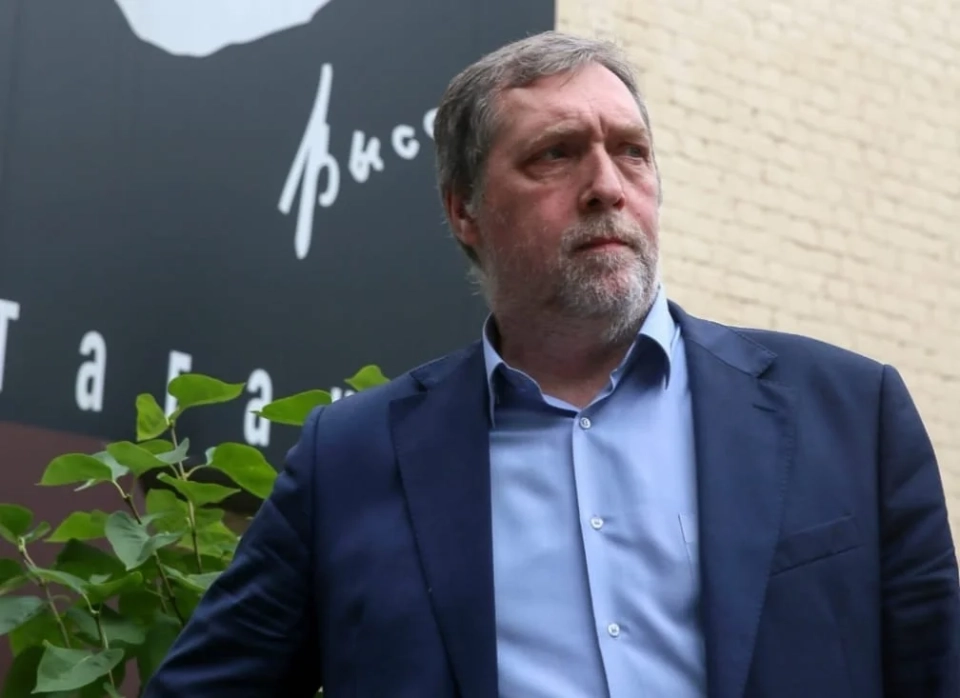
"August" in Bishkek. Director Nikita Vysotsky on cinema, the festival, and Kyrgyzstan
– The film adaptation of Vladimir Bogomolov's novel "Moment of Truth," also known...
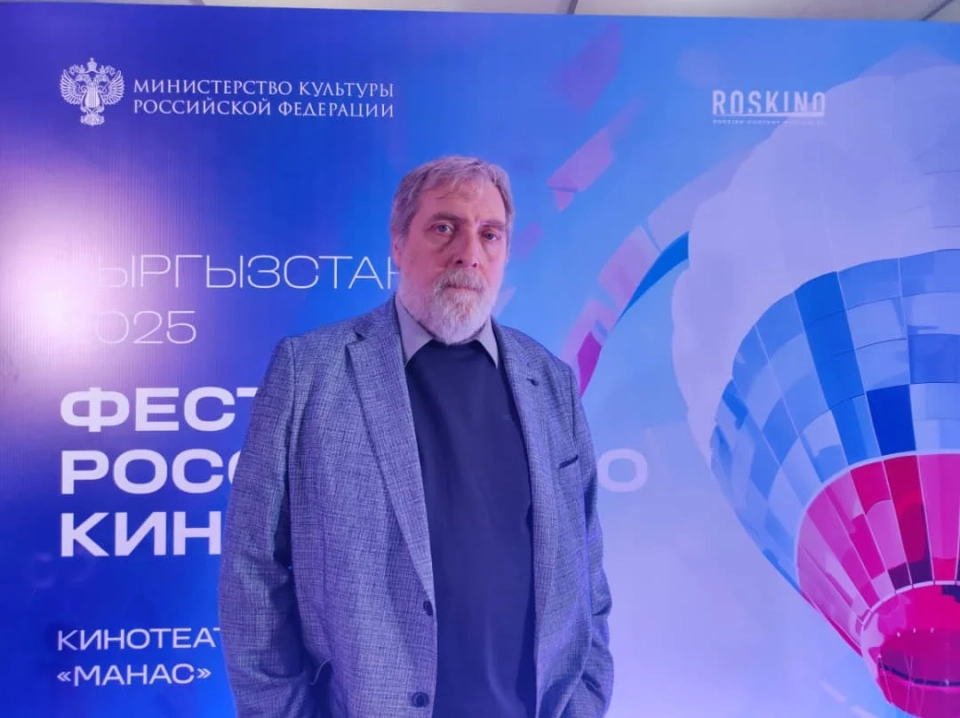
A meeting with the participants of the Russian Film Festival took place at the "Manas" cinema.
A meeting was held at the 'Manas' cinema as part of the Russian Film Festival, where the...
The screening of the film "Algimantas Vidukirgis - Confession of a Director's Wife" will take place.
On November 2, 2025, the premiere of the documentary film by Tynai Ibragimov titled...
The festival of Russian cinema has begun in Bishkek
On October 29, the opening of the Days of Russian Culture took place at the Kyrgyz National...
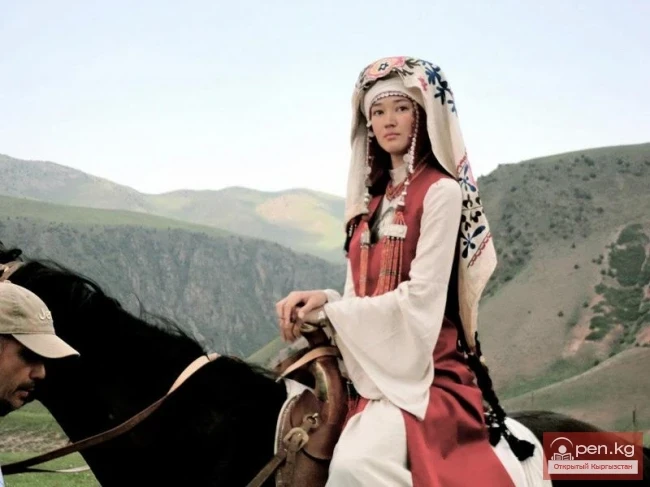
How a Strong Woman Led Kyrgyz Cinema to Success
The film "Kyrmanjan Datka" by Sadik Sher-Niyaz has been included in the program of the...
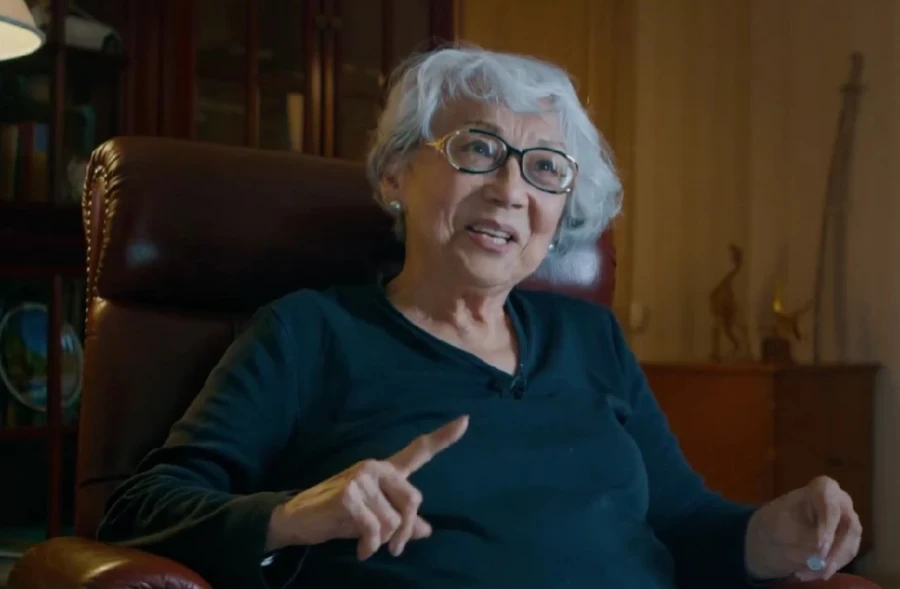
On November 2, a screening of the film "Algimantas Vidukirgis — Confession of a Film Director's Wife" will take place at the House of Cinema.
The screening features a documentary dedicated to the memory of Roza Tabaldieva, the wife of...
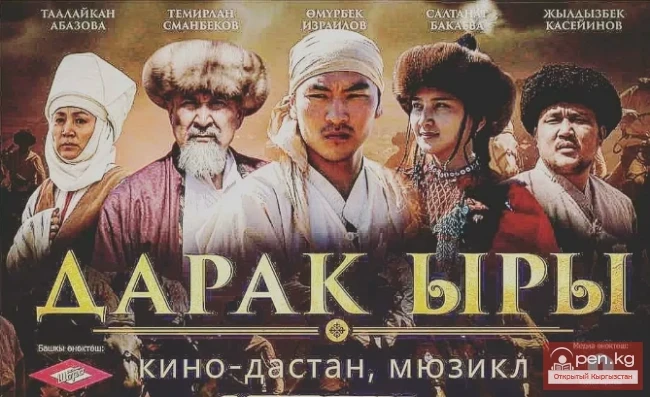
The film "Darakh Iry" won the Grand Prix at the film festival in Russia.
A Film from Kyrgyzstan Became the Best at the Muslim Film Festival On April 30, the results of the...
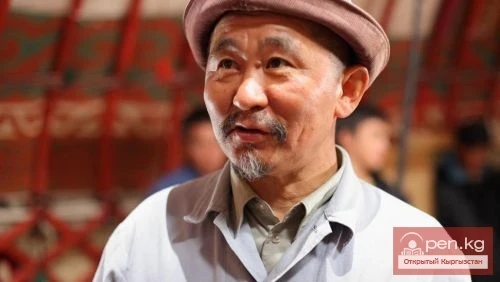
The film "Light-Ake" will be screened at the Museum of Modern Art in New York.
On April 7, the Museum of Modern Art in Manhattan, New York, will screen the film...
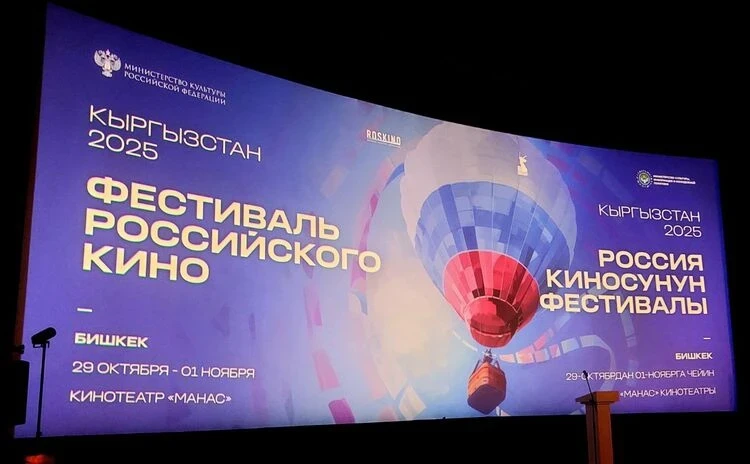
The Russian Film Festival "Kyrgyzstan-2025" has kicked off in Bishkek
Photo 24.kg. The festival runs from October 29 to November 1 The Russian Film Festival has kicked...
Days of Russian Culture will be held in Kyrgyzstan
From October 29 to November 2, Kyrgyzstan will host the Days of Russian Culture, supported by the...
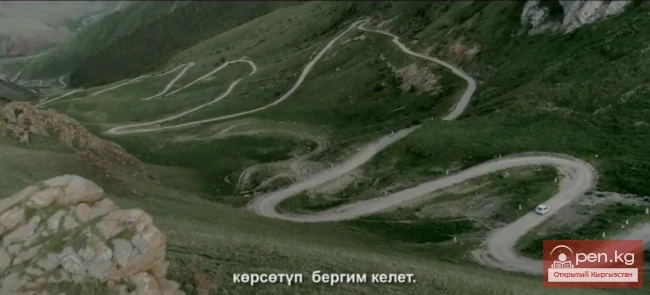
"Stunning Documentary About Kyrgyzstan. Video"
Kyrgyz director Nurlan Anarbaev has created a captivating documentary about his homeland. The...
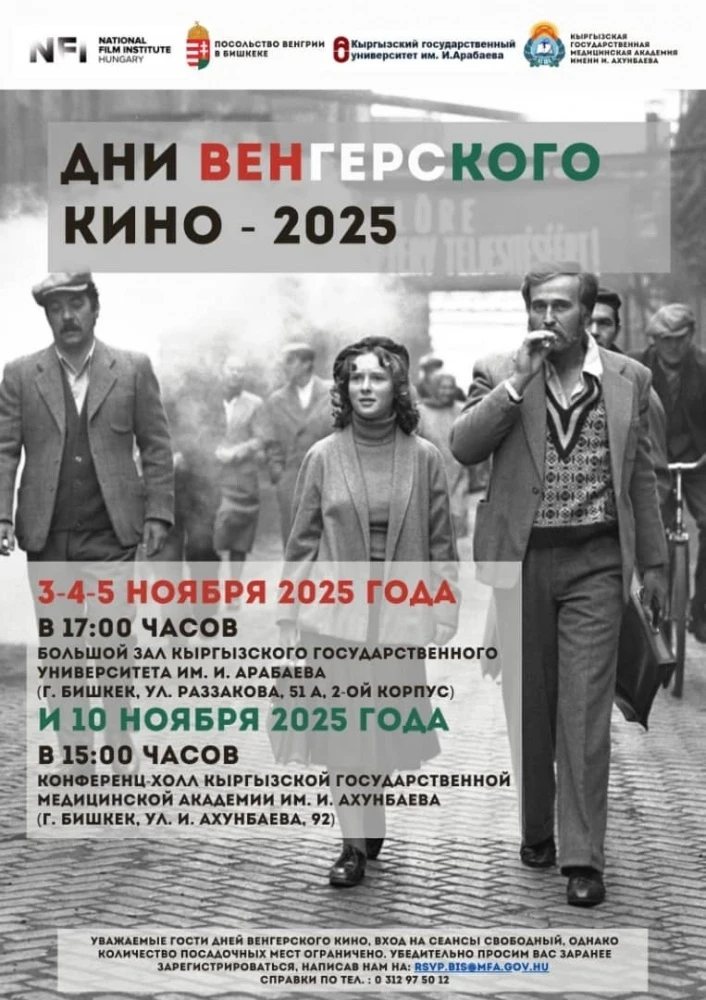
On November 3rd, Hungarian Film Days will kick off in Bishkek
From November 3 to 10, the capital of Kyrgyzstan will host a screening of the best films from...
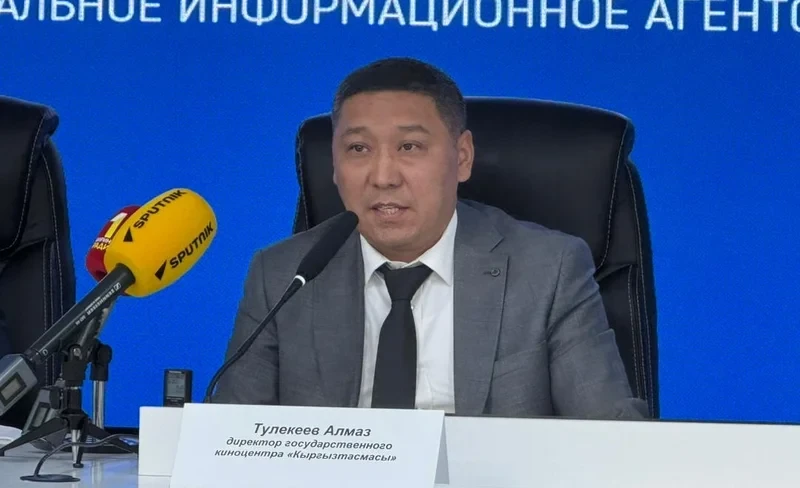
Almaz Tulekeev spoke about plans for developing cinematic cooperation with Russia
Almaz Tulekeyev, head of the state film center "Kyrgyzfilm," stated that the interaction...
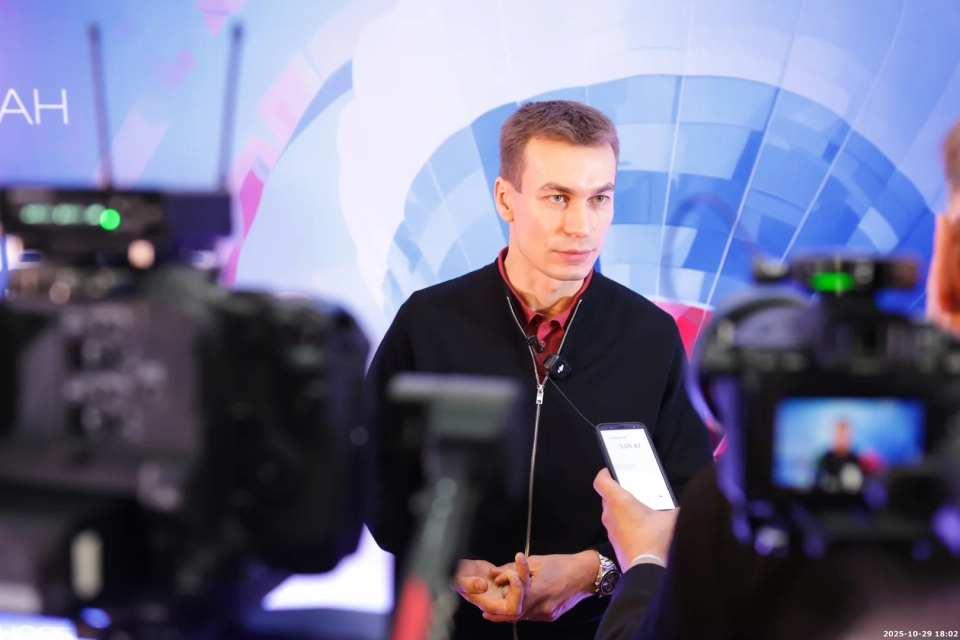
Kirill Kuznetsov: Historical Projects are Always a Gift for the Artist
– The first step when you receive a script is the interest in the plot: how to interpret it, how...
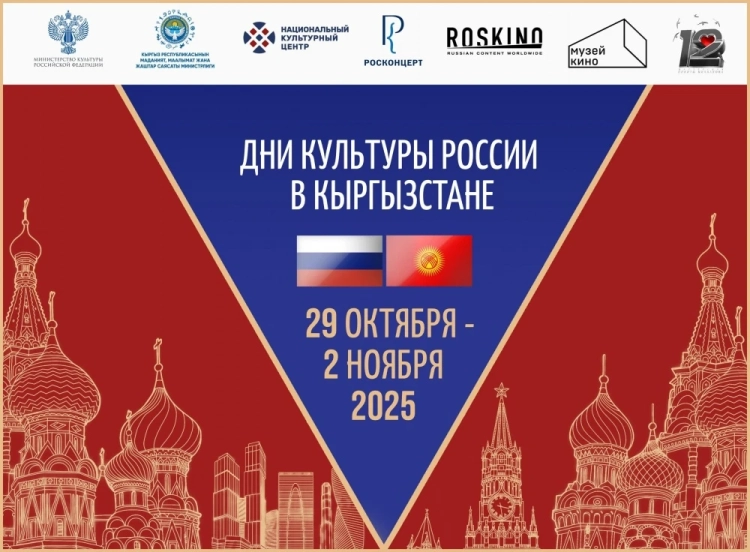
In Kyrgyzstan, the Days of Russian Culture will take place from October 29, 2025.
As part of this project, which is being implemented with the support of the Ministry of Culture of...

A decrease in nighttime and daytime air temperature is expected.
A decrease in night and daytime air temperature is expected On Tuesday, March 13, rain is expected...
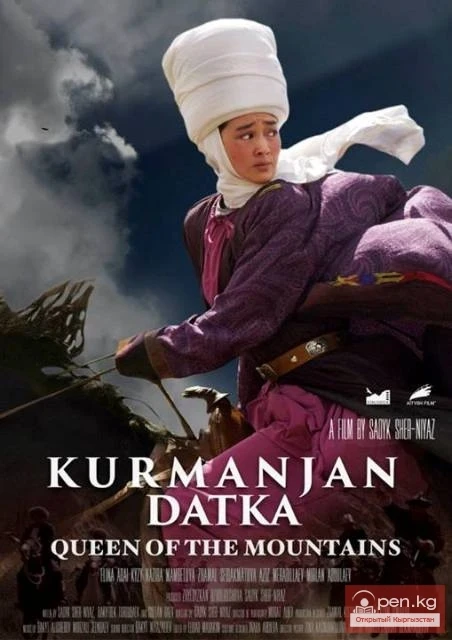
The film "Kurmanjan Datka" has been delivered to the client.
On August 13, at the "Manas" cinema in Bishkek, the completed film "Kurmanjan...
In Kyrgyzstan, over 1,200 kilometers of roads were built and updated in 2025
This year, the Ministry of Transport and Communications of Kyrgyzstan has completed the...

iTalk - a platform for presenting successful ideas
When: March 7 at 15:00...
The "most beautiful boy of the 20th century" has died
According to Dagens Nyheter, Björn Andrésen passed away at the age of 71. This was made known by...

An Amazing Story About the Kok-Boru and Many Interesting Facts About Kyrgyzstan Will Be Shown to the Whole World
Recently, the filming of the documentary "The New Silk Road" was completed, which will...
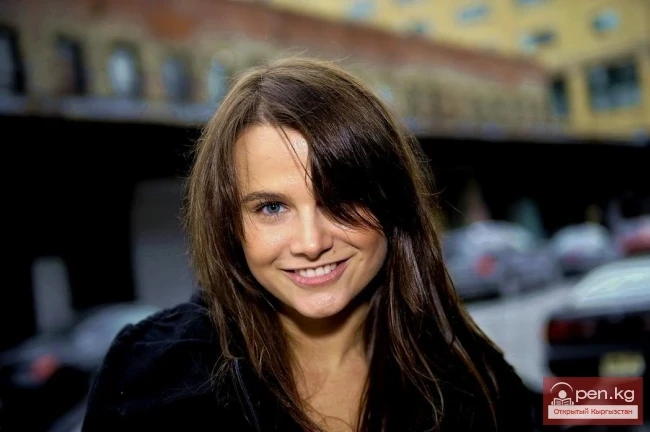
A native of Kyrgyzstan made it to Forbes' list of young entrepreneurs.
Olga Vidisheva, a native of Kyrgyzstan, has made it to the list of 30 successful young...
In Kyrgyzstan, the screening of the Kazakh film "Region 13" has been banned.
In Kyrgyzstan, the criminal drama "Region 13," filmed in Kazakhstan and discussing the...
The Days of Hungarian Cinema will take place in Bishkek. Program
The Embassy of Hungary in Bishkek has announced the Hungarian Film Days, scheduled for November 3-5...
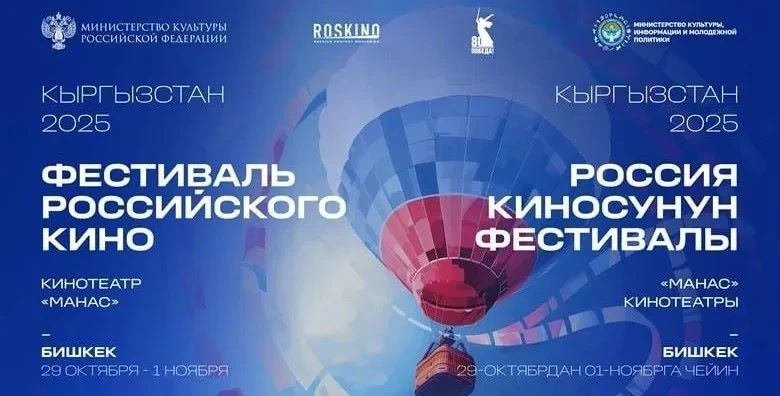
The Festival of Russian Cinema will take place in Bishkek
The Russian Film Festival will take place in the capital of Kyrgyzstan, Bishkek. This event is...
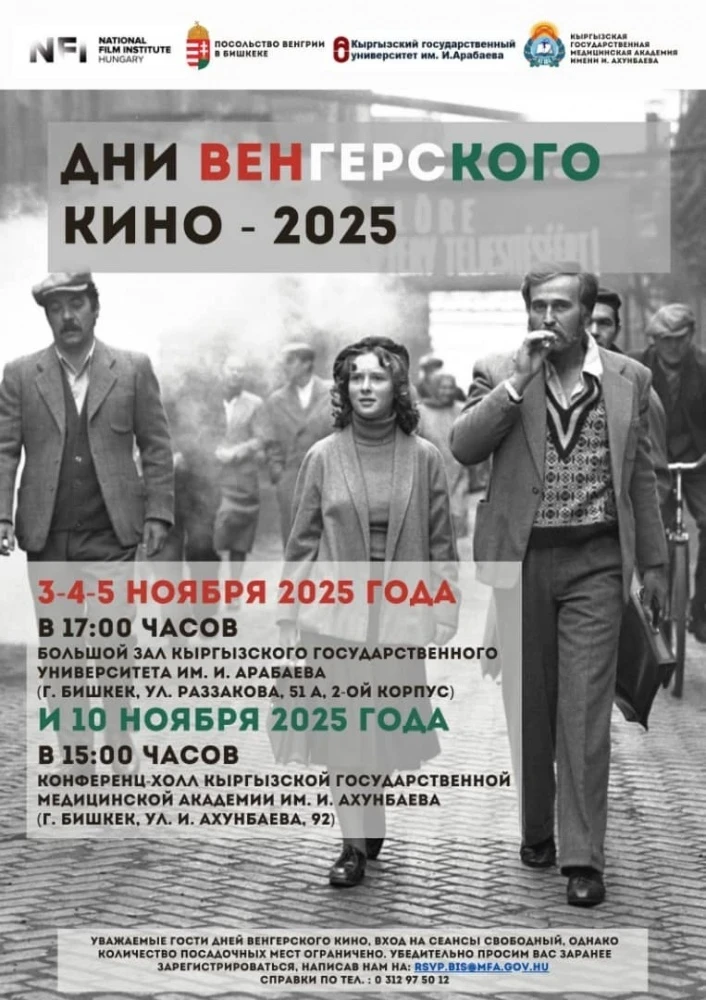
Hungarian Film Days to be Held in Bishkek
From November 3 to 10, 2025, the Hungarian Film Days will take place in Bishkek, organized with...
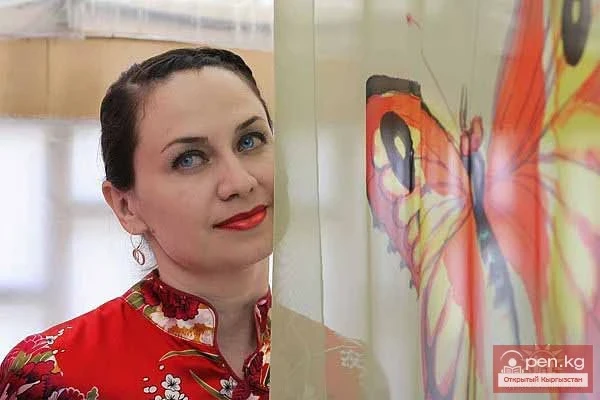
Marina Shipulina: The Most Grateful Audience in Kyrgyzstan!
The appearance of this incredibly beautiful singer on stage always evokes a storm of applause and...
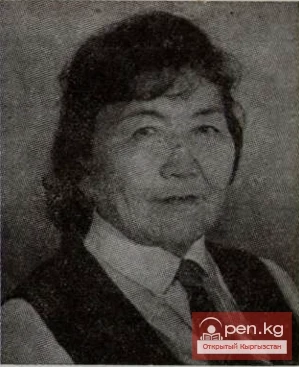
Mamuraliyeva Fatima
Mamuralieva Fatima Film director. Born on May 20, 1924, in the village of Taldy-Suu, Tyup...
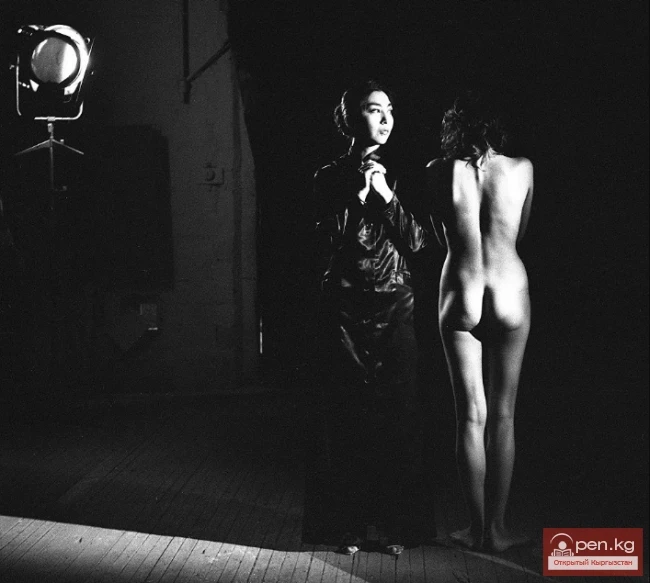
How "Strawberry" Was Filmed in Kyrgyz Cinema
Frame from the film "Anomaly" directed by Gennady BazarovMore: How Naked Girls Were...
Published list of 143 citizens of Kyrgyzstan who died in Ukraine
According to the "I Want to Live" project, at least 143 citizens of Kyrgyzstan have died...
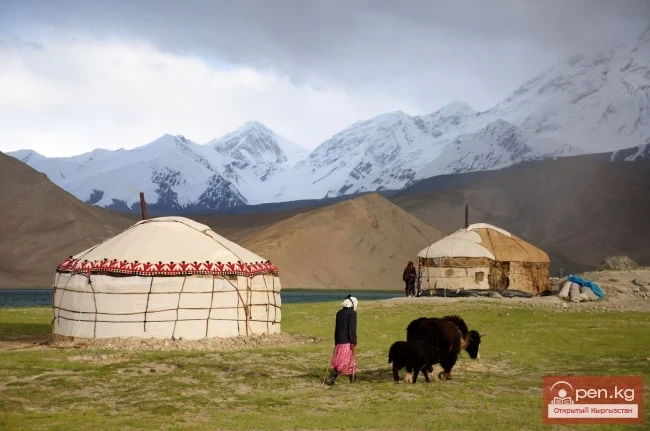
A film about Kyrgyzstan will be shown on the world-renowned channels Discovery and BBC.
Author: Aziza Berdibaeva...

Such "Grooms"!
The State National Russian Drama Theater named after Chinghiz Aitmatov constantly delights art...
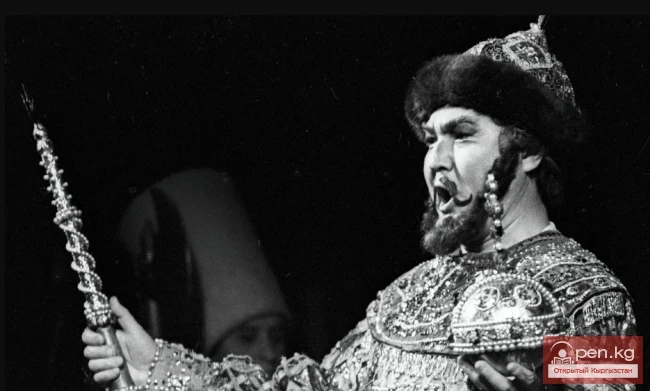
Godunov — a Major Creative Victory of Minzhilkiev. Television and Cinematography of Kyrgyzstan in the 70s to Early 80s. Part 3
Visiting... Boris Godunov In the 1970s, Kyrgyz television cinema actively experimented with...
"Kyrgyzfilm" digitized the film about the construction of the Toktogul Hydroelectric Station "I Do Not Allow the Catastrophe"
The National Film Studio "Kyrgyzfilm," in collaboration with the Central State Archive...
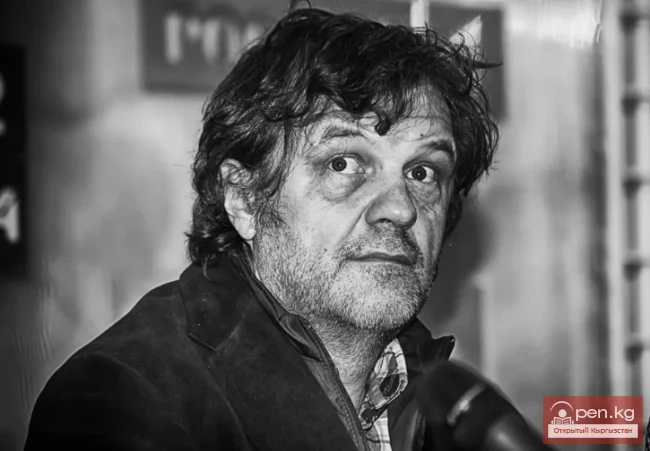
Emir Kusturica Plans to Make a Film About Genghis Khan Based on a Book by Chinghiz Aitmatov
Kusturica plans to make a film about Genghis Khan based on Aitmatov's book Film director Emir...
Vladimir Putin announced the successful tests of the drone "Poseidon" with a nuclear charge
At a meeting with servicemen of the 127th Separate Brigade of Reconnaissance of the 18th Army of...
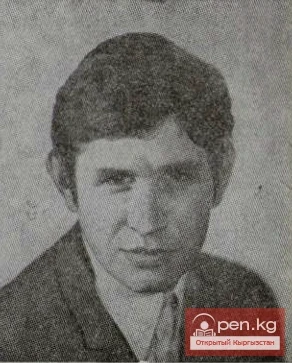
Orozaliev Konstantin Kerimkulovich
Orozaliev Konstantin Kerimkulovich Cinematographer. Honored Artist of the Kyrgyz SSR (1979). Born...
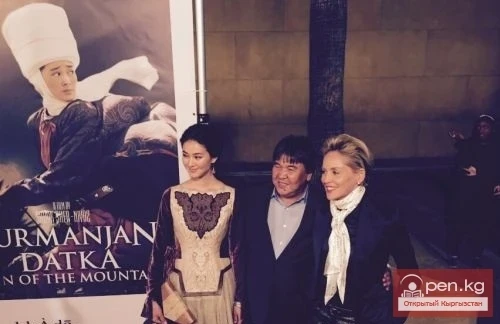
The premiere of the film "Kurmangazy Datka" featuring Sharon Stone took place in Los Angeles.
The premiere of the film "Kurmanjan Datka" took place in Los Angeles (USA) on November 4....
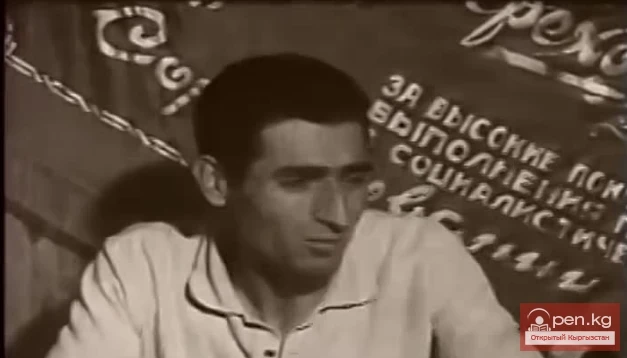
Artistic Opening of the Dilogy of Vidugiris on the Toktogul Hydroelectric Power Station
Retreat Two. “The HPP was built by the whole country...” ...While browsing through some remnants...
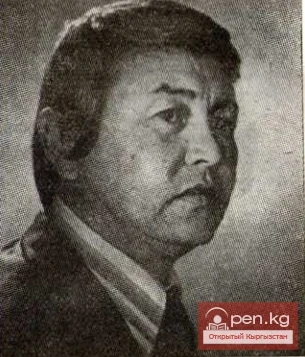
Kydyraiev Kadyrzhan
Kydyraliev Kadyrzhan Cinematographer. Honored Artist of the Kyrgyz SSR (1969). Laureate of the...
Bishkek Romeo - Mark Glickman
Almost every actor has their star role. For Mark Glikman, that character turned out to be Romeo, as...
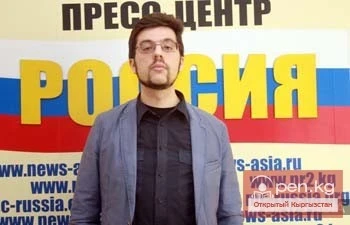
Nikita Mendkovich: "The Problem of Kyrgyzstan Lies in the Area of Large Investment Projects"
Not long ago, Kyrgyzstan denounced the agreement with Russia on the construction and operation of...
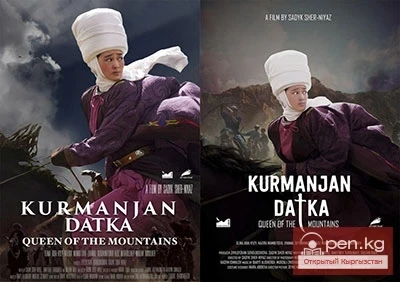
"Kurmanjan Datka" was shown in Moscow
The premiere of the new film by Kyrgyz filmmakers "Kurmanjan Datka" was successfully...
The Generative AI Hackathon 3.0 Kicks Off in Kyrgyzstan
The Generative AI Hackathon 3.0 is a large-scale two-month project that provides young people from...
Terskey Alatau, Tian Shan
Journey through the Terskey Alatau and Tian Shan...
